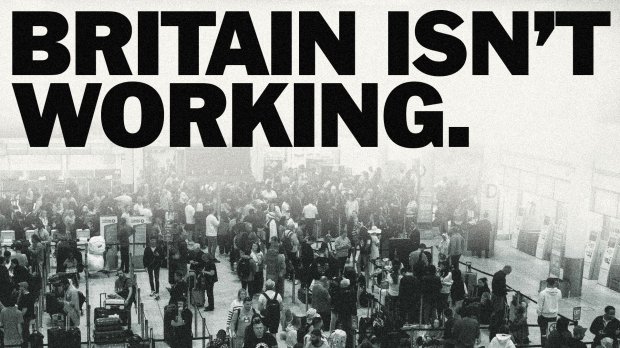There was plenty of miserable economic news in this week’s Budget: the highest taxes imposed by any peacetime government, the worst post-pandemic recovery in the G7, the most painful cost-of-living squeeze since records began. But there was also a statistic which, on the face of it, seems to herald a remarkable success. The official unemployment rate stands at just 3.7 per cent – less than half the rate of a decade ago, as low as it has been in half a century. In his Budget, Jeremy Hunt boasted that ‘Conservatives believe that work is virtue’.
Sadly, as this magazine revealed several months ago, there is rather more to the figures than meets the eye. There may be only 1.2 million people officially unemployed, yet figures also show the number claiming out-of-work benefits is 5.2 million. Many of these claimants are judged as too sick to work: there are more people on ‘incapacity benefit’ and its successors than under Labour. But 1.9 million are counted as being fit to work, yet in receipt of out-of-work benefits.
At any time in an economic cycle, this would be a tragic waste of human life and potential. But in the middle of a worker shortage – when shops, restaurants and companies are crying out for staff – such huge levels of worklessness suggest incompetence of historic proportions. In some of our great cities – Glasgow, Liverpool, Manchester – a fifth of working-age people are claiming out-of-work benefits. The Tories never talk about that, anxious not to draw attention to the problem. Labour has not yet cottoned on to the scale of the scandal.
No wonder economic growth has evaporated: how can any country prosper while keeping 13 per cent of its workforce on benefits? Mass immigration can be used to cover up this failure, but only up to a point. Even with arrivals at record high, companies are still held back from lack of staff. And while every country saw lockdown blow a hole in the size of the workforce, no one has struggled as much as Britain in rebuilding the number of workers to pre-pandemic size. By no coincidence, the UK is the only G7 country whose economy remains smaller than it was pre-pandemic.
The fixes announced this week – the universal support scheme to accompany universal credit – are fine, as far as they go. There have been some small improvements in the number of workers. But overall the government is squandering a golden opportunity to apply the radical welfare reform that is so urgently needed. At present there are 1.1 million job vacancies. This is the time to assess people for what jobs they can do and support them as they move into this work.
Ministers cannot move fast enough to get more people into work, partly because they cannot find enough staff to man the job centres. So we cannot fix the labour market crisis because of the labour market crisis. During the pandemic, the number of work coaches in job centres was about 21,000. That number has since fallen by almost a third. If we were once able to increase staffing levels, then why not again?
The simple answer is that the sense of urgency has gone. Welfare is an easy problem to cover up because no one really digs into the figures. The scandalous figure of 5.2 million is hidden in a government database. Politicians respond to pressure. If there is no pressure from the public or the press, they will ignore problems, even if this means ignoring the sad plight of millions of people.
‘Independence is always better than dependence,’ Hunt said in his Budget, ‘which is why a Conservative government believes that those who can work should.’ But where are the policies to back these words? If welfare dependency was reduced to pre-pandemic levels, we would now have a million fewer out of benefits and in work. This is an extraordinary fact that the Tories must remember, should they ever feel the urge to congratulate themselves on previous welfare reform.
Much has been made of the over-fifties who did not come back into the workforce after the lockdowns. Hunt wants to coax them back with apprenticeships and abolish the lifetime cap on pensions. This may help at the margins. But overall, people in this age group are not generally reliant on benefits – and are currently put off working by the income tax rates now imposed.
The Chancellor should focus on younger workers, dependent on out-of-work benefits and trapped in a dysfunctional welfare system that is once again bankrolling the worklessness it was set up to eradicate. A tougher problem, yes. But one that can no longer be ignored.
Under high-tax Toryism, the financial incentives to take up work are too small – and there is far too much incentive to claim benefits. There are now a record 2.5 million not working because they are long-term sick: 20 years of progress on this front has been eradicated since the lockdowns. The government needs to match its words with action and rediscover the enthusiasm it had for welfare reform in the early days of the coalition. And, this time, follow through.
Got something to add? Join the discussion and comment below.
Get 10 issues for just $10
Subscribe to The Spectator Australia today for the next 10 magazine issues, plus full online access, for just $10.
You might disagree with half of it, but you’ll enjoy reading all of it. Try your first month for free, then just $2 a week for the remainder of your first year.














Comments
Don't miss out
Join the conversation with other Spectator Australia readers. Subscribe to leave a comment.
SUBSCRIBEAlready a subscriber? Log in